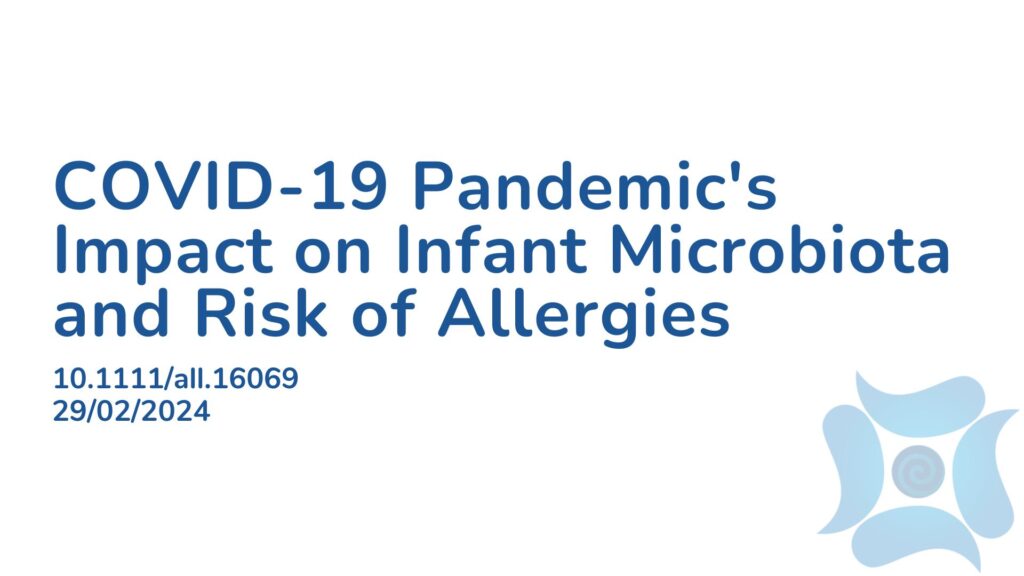Summary:
Numerous studies have proposed a link between reduced microbial exposure and the increased prevalence of allergies. Given the social distancing measures and reduced outdoor exposure during the COVID-19 pandemic, this study aimed to identify the environmental exposures and dietary factors influencing early-life microbiota development and their associations with allergic outcomes. The research analyzed fecal samples from 351 infants at 6 months of age and repeated the process with 343 infants at 12 months. Online questionnaires were used to collect information on home environment, healthcare utilization, infant health, allergic diseases, and diet. Skin prick testing was conducted at 12 and 24 months, along with assessments for atopic dermatitis and food allergy. The results revealed that infants born and raised during the pandemic had higher levels of bifidobacteria but lower levels of environmentally transmitted bacteria like Clostridia, indicating reduced overall microbial exposure. Additionally, introducing plant-based foods during weaning promoted healthy gut bacteria growth. High levels of Bifidobacteria at 6 months and abundant butyrate-producing bacteria at 12 months appeared to reduce the risk of skin issues like atopic dermatitis and positive skin prick test results. These findings underscore the significant influence of environmental exposures and dietary factors on microbiota development, suggesting that increased exposure to environmental microbes may protect against allergic diseases during infancy.
Abstract:
Background: Several hypotheses link reduced microbial exposure to increased prevalence of allergies. Here we capitalize on the opportunity to study a cohort of infants (CORAL), raised during COVID-19 associated social distancing measures, to identify the environmental exposures and dietary factors that contribute to early life microbiota development and to examine their associations with allergic outcomes. Methods: Fecal samples were sequenced from infants at 6 (n = 351) and repeated at 12 (n = 343) months, using 16S sequencing. Published 16S data from pre-pandemic cohorts were included for microbiota comparisons. Online questionnaires collected epidemiological information on home environment, healthcare utilization, infant health, allergic diseases, and diet. Skin prick testing (SPT) was performed at 12 (n = 343) and 24 (n = 320) months of age, accompanied by atopic dermatitis and food allergy assessments. Results: The relative abundance of bifidobacteria was higher, while environmentally transmitted bacteria such as Clostridia was lower in CORAL infants compared to previous cohorts. The abundance of multiple Clostridia taxa correlated with a microbial exposure index. Plant based foods during weaning positively impacted microbiota development. Bifidobacteria levels at 6 months of age, and relative abundance of butyrate producers at 12 months of age, were negatively associated with AD and SPT positivity. The prevalence of allergen sensitization, food allergy, and AD did not increase over pre-pandemic levels. Conclusions: Environmental exposures and dietary components significantly impact microbiota community assembly. Our results also suggest that vertically transmitted bacteria and appropriate dietary supports may be more important than exposure to environmental microbes alone for protection against allergic diseases in infancy.
Article Publication Date: 29/02/2024
DOI: 10.1111/all.16069



